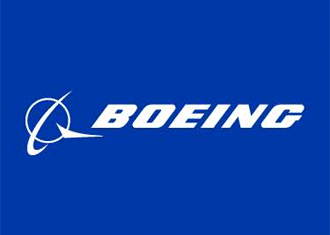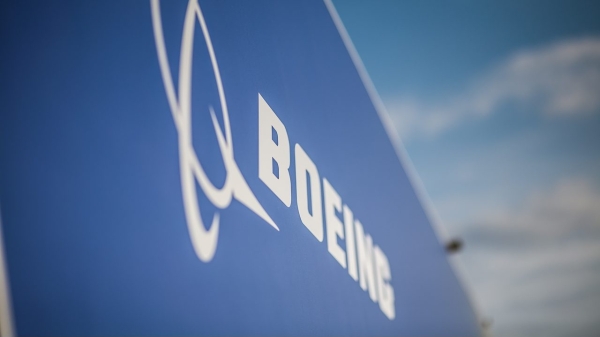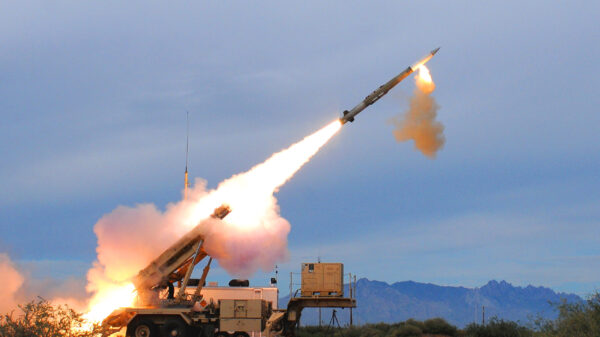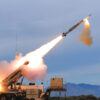By Brandon Moseley
Alabama Political Reporter
This is part three in our series covering Alabama Aircraft Industries (AAI)/formerly PEMCO) landmark $100 million lawsuit against The Boeing Company. AAI alleges that Boeing used bid rigging, politics, and violated trade secrets to drive an Alabama competitor, AAI, out of business. Last week we discussed how Boeing allegedly recruited the Air Force’s #2 procurement officer, Darleen Druyun, to sway contracts from competitors to Boeing. One contract allegedly so affected was the KC-135 PDM contract that was long held by PEMCO/AAI. Due to performance issues with Boeing’s San Antonio facility, the Air Force requested that Boeing make AAI a subcontractor and assigned roughly half of the Programmed Depot Maintenance work on the Air Forces KC-135 Stratotanker contract to PEMCO/AAI in Birmingham.
The Alabama Political Reporter discussed the pending litigation with both the former Chairman of the Board of Alabama Aircraft Industries (AAI) Skip Bowling and AAl bankruptcy Trustee Joe Ryan.
After AAI’s contract to do PDM on the KC-135 ran out it entered into a contractor-subcontractor relationship with Boeing as the contractor. Chairman Bowling said, “They (Boeing) were the prime contractor and that meant that anything that Alabama Aircraft/PEMCO wanted to do, it had to be worked directly through Boeing which included, and very importantly this is where parts are very key to this business, if you can get parts, the job gets so much easier and they had control of all of the parts. So, they really had control of the business.” In its lawsuit, AAI is alleging that Boeing deliberately slowed delivery of parts to AAI’s Birmingham facility to prevent AAI from receiving bonus money from the Air Force for speedy completion of the work and to ensure that they were never short on parts themselves.
Ryan said that Boeing demanded cost savings from AAI but then never passed those savings on to the Air Force: “Boeing was subcontracting to Alabama Aircraft, and in that subcontract, the costs that we incurred while doing the work were billed to Boeing as the prime contractor. I think, perhaps, there is plenty of evidence that Boeing then added to the costs that was billed to Boeing by Alabama Aircraft and added an additional amount, I don’t know precisely what that amount was, and then billed that to the Air Force. So, you can look at it as a markup, additional profit, a fee or whatever it was, but the amount of cost that was passed on to Boeing of our subcontract was then passed on to the Air Force with then Boeing adding some additional cost to it.”
Trustee Joe Ryan said, “Without any question in our minds that what happened here is Boeing took advantage. It began in 2000, where we did the work and we were paid X price. By virtue of the subcontract and its requirements we essentially taught Boeing how to do the work. We taught Boeing the ins and outs of service, the service schedules, the maintenance schedules, intellectual property that we had essentially developed from 1969 to 1998.” Ryan said that Boeing “took advantage” of AAI to gain critical knowledge and expertise from AAI. Both Bowling and Ryan deny that AAI was ever paid anything for their proprietary intellectual property by Boeing.
The Boeing Company has been accused of stealing intellectual property before. In 1998, Boeing withdrew from bidding on a missile defense contract when it was discovered that Boeing had illegally obtained trade secrets of its competitor on the bid, Raytheon. In 1999, Boeing illegally obtained 66,000 pages of documents about Lockheed’s rocket launch secrets when both companies were competing for the Air Force’s Evolved Expendable Launch Vehicle (EELV) contract. Over a $billion worth of contracts were later taken by the Air Force from Boeing and reallocated to Lockheed. Three Boeing employees were charged with criminal misconduct in this episode. Disgraced Air Force procurement officer Darleen Druyun also admitted to sharing confidential information about the EADS Airbus A330 competing bid with Boeing as well as rigging contracts for Boeing. She served 9 months in prison for her actions. Boeing paid a $615 million fine and the Boeing CFO at the time Michael Mears served 4 months. Lockheed would later drop its lawsuit against Boeing when the two corporations merged their rocket programs and made a joint bid on the EELV contract.
In 2005, officers with both Alabama Aircraft Industries and The Boeing Company drew up a memorandum of understanding agreement (MOA). In the MOA, the two companies agreed to submit a joint bid together for the 2008 KC135 PDM contract. In the joint bid agreement, AAI is alleging that AAI agreed not to bid against Boeing and Boeing agreed not to plunder AAI secrets as AAI shared all of its costs and pricing information with Boeing in the mutual effort to win the ten year contract together. Boeing would do PDM work on 16 or more KC-135s at their San Antonio facility and PEMCO would handle 24 or more at Birmingham. Boeing also agreed that if PDM work ever dropped from the anticipated 40 to just 24 planes a year or less then that work would be done by PEMCO at Birmingham. The two companies combined all of their knowledge and experience in preparing their joint bid for the Air Force. As part of that MOA agreement PEMCO was required to spend over $5 million on making its systems compatible with Boeing’s systems.
As the bidding for the FY 2008 KC135 Stratotanker PDM contract approached, Boeing received information that the Air Force might only do PDM work on just 24 planes a year. Even though both parties had known that this was a possibility and had addressed this issue in the 2005 MOA, Boeing used the announcement of that information as justification for suddenly unilaterally canceling the 2005 MOA and was bidding on the contract itself without PEMCO as a subcontractor. Its explanation was that defense spending cuts would likely mean that the Air Force would only need 24 KC-135s a year to undergo PDM maintenance and Boeing could do that adequately at its San Antonio facility without assistance from PEMCO.
PEMCO officials scrambled to prepare their own independent bid on the ten year FY2008 KC-135 PDM contract with the Air Force. At the same time, PEMCO continued to do KC-135 PDM work as a subcontractor for Boeing under the then still current FY 1998 ten year contract for the KC-135 PDM work. Boeing officials still had the information Pemco provided to them as part of the bidding process, complete access to PEMCO’s Birmingham facility and they still controlled the flow of Boeing parts to the PEMCO facility. It is AAI’s (PEMCO) contention that Boeing was using all of that inside information to gain an advantage on the bid and it was using parts delays to keep PEMCO from winning bonus money to starve its smaller competitor. AAI views the 2005 MOA as an enforceable contract that Boeing breached and they maintain the view that Boeing used AAI’s proprietary knowledge about AAI costs and pricing to prepare Boeing’s own bid for the 2008 KC-135 PDM contract. AAI views this conduct as a breach of contract on the part of Boeing. Under terms of the contract, the Boeing employees who worked with PEMCO were not supposed to be able to share information with the Boeing employees who would be responsible for preparing Boeing’s bid on the contract. Trustee Joe Ryan said, “The whole thing was set up with the form of a so-called Chinese Wall. But the Chinese Wall that was in place had holes an Alabama tailback could run through.” Former AAI officials also view the parts delays as a conscious effort to harm AAI and another breach of contract as was the canceling of the 2005 MOA agreement in the first place.
To Be Continued
Next week: the conclusion Boeing versus AAI for one last contract.





















































